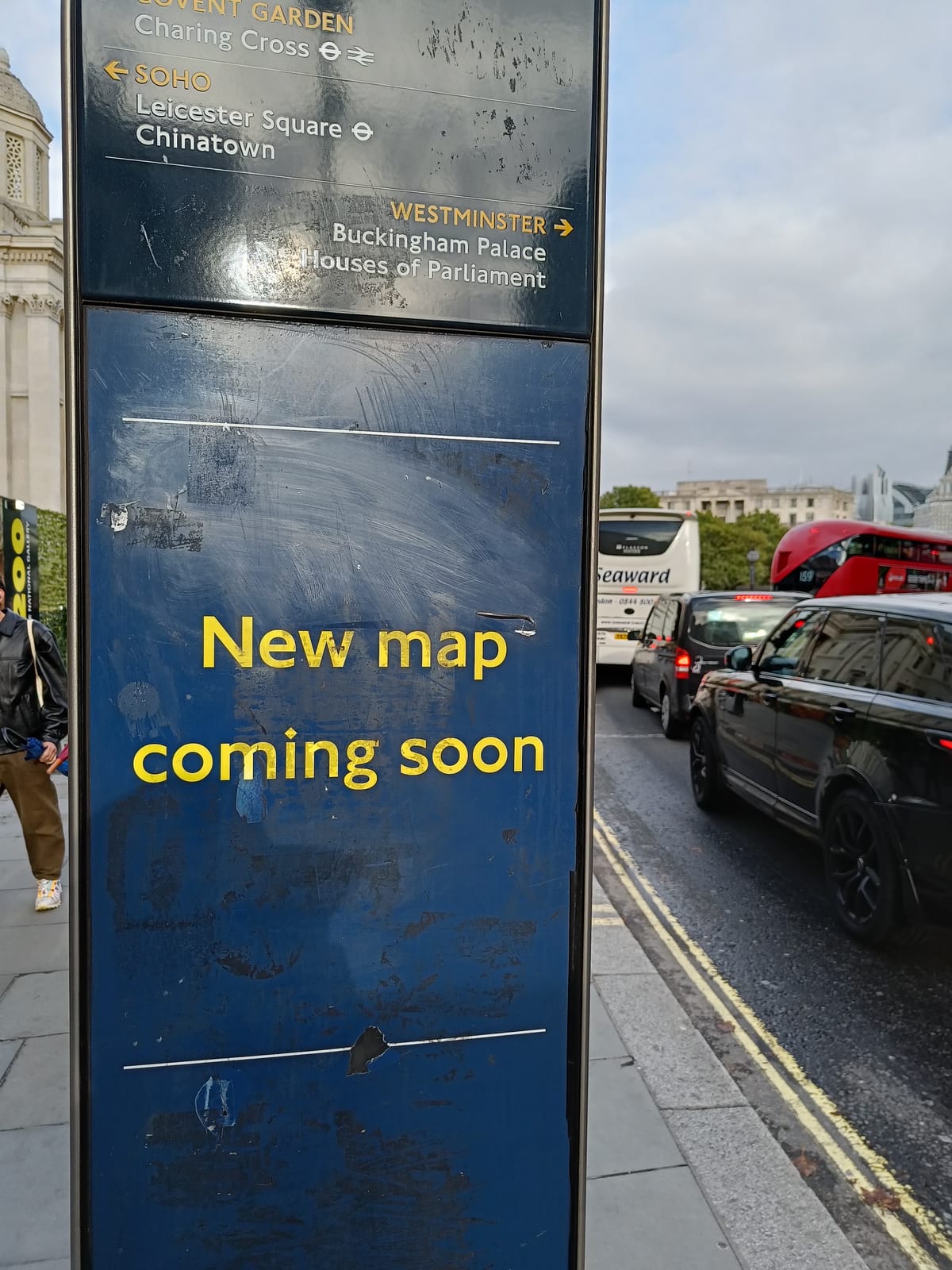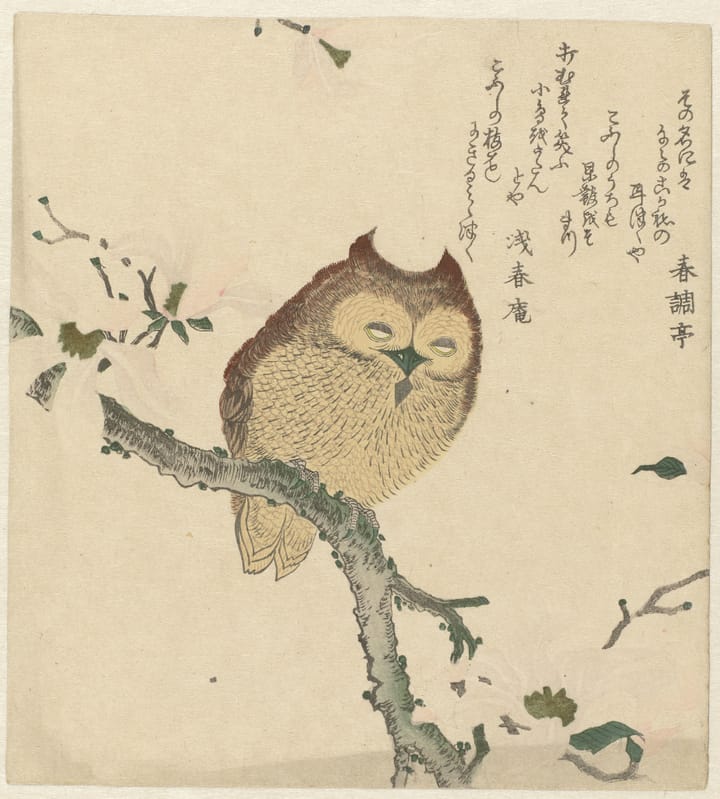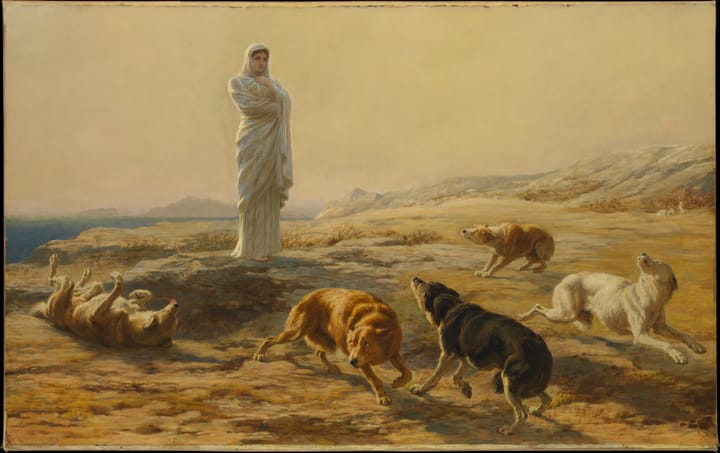week 40 / 2024
Beached by fate but home at last, pouring out libations to the cackling gods of infrastructure... by Zeus, can it truly be WEEKNOTES? This week, "ready to go" gave way to "already gone".

Mere minutes after announcing in the previous installment of weeknotes that my journey home from London had been going really well, my phone pinged with the news that my train between hamburg and Copenhagen was cancelled.
Take it from someone who has a doctoral qualification related to infrastructure: you really don't want to tempt fate like that. The deities of steel and concrete are capricious and cruel when they feel taken for granted; they make the Greek pantheon look like a third-rate reality show by comparison. Odysseus might have sailed the wine-dark Med and made it home (eventually), but your man would break down and cry for his mum if he tried to cross Germany by rail on a weekend inexplicably loaded with trackside engineering work.
It wasn't too bad in the end. Being an old hand at this stuff, the first thing I did was buy a reservation on the last alternative train on the same day, before taking myself to what may be downtown Hamburg's best-kept secret, namely its very comfortable public library. The train I eventually took was pretty rammed, and I didn't get home until nearly midnight, but it could have been much worse. Monday was mostly earmarked for a rest day, and that was also wise, but I should probably have let Tuesday lay fallow too: I spent a day at my desk, but I would have lost little by being almost anywhere else.
Well, selah—sometimes that's just how it goes. What did we achieve, then?
ticked off
- No essay or interview on This Very Website. (I need to rethink the frequency and size of what I publish here, in response to patient and helpful feedback from some regular readers, and make a plan that I can actually stick to while meeting my other commitments. This will be better for you, dear reader, and better for me, too.)
- Eighteen hours redeveloping the Vector essay pretty much from scratch. (This is a reminder that I'm really not very good at multitasking on big writing projects. I had this thing pretty much ready to go about six weeks back, but "ready to go" often means for me "exists as a collection of notes to be glued together using a tangle of thoughts and riffs in medium-term memory"; in other words, if I get distracted or derailed by other things at this stage, the connective material may well have evaporated by the time I come back to finish it. The note-to-self here should therefore be: push out those connective ideas into notes before switching tasks! Yes, it'll take a few hours, but it means you won't have to spend a dozen hours thinking your way back into the damned thing when your schedule finally opens up again... which means in turn that you won't have to prevail further upon the already tested forbearance of your editor.)
- Somewhere between eight and ten hours of admyn, depending on how one chooses to count certain periods of firefighting-by-email. (This is the stuff that really makes you pine for a salaried gig in an organisation big enough to have people whose whole job is fixing paperwork SNAFU. It's also, for those of you on that side of the fence, why our dayrates look ridiculous; we're factoring in not just the day we do for you, but the half-day we end up having to do with your accounts department, or our bank, or the tax office, or, or, or...)
- Twelve hours of undirected reading and writing. (The crabbiness of my personal blogging is probably indicative that this has been a kind of stressful week.)
kinmaking
Rather surprisingly, it's been a pretty good week for talking to people. I had a long ramblechat with architect and urbanist Gustav Magnusson after an event in Copenhagen to launch his Keynote Conversations book; very nice to spend time with someone who is just as prone to wander from topic to topic as I am myself.
I also had a catch-up call with copywriter and author Siobhan McVeigh, who was among the cohort of my Masters course at Middlesex back in 2011-12, and I managed to get some chinwag time with Nick Dunn of Lancaster University on either side of his lecture on envisioning urban futures at Media Evolution.
(Nick was one of my viva examiners, which means he's one of the two to four people other than myself who actually read my doctoral thesis; I think it fair to suggest that this indicates a certain mental fortitude, and an unusual tolerance for unorthodox lines of thought, especially when we consider that he still talks to me now.)
reading
This week I've mostly been working my way through the middle section of Rian Hughes's XX, which I mentioned here a few weeks back. As I said then, it's a novel of ideas, and I like those—but it's also a veeeery looooong novel of ideas that likes to remind you, frequently and quite directly, that it is a novel of ideas, don't you know?
Put another way, it feels like there's a lot more ideas than novel—and at a length of one thousand pages (seriously), that's a lot of as-you-know-Bob expository bread to chew down against a surfeit of nice narrative butter. In truth, I should probably have quit long before the halfway mark, but the sunk cost fallacy has me in its claws, an I'm justifying the slog by telling myself I'm learning how not to do it in my own work.
(As I remarked to someone this week, one often assumes that artists are inspired to create by their encounters with the artworks they most loved, but that's at most only half the story. For me at least, the idea that I might write myself came not from one of the best books I ever read, but rather from the first one I read that was bad enough for me to think "oh, come on, even I could do better than this...")
a clipping
A politely provocative argument here at Aeon by one Rachel Fraser, against not just the notion of intellectual humility, as the title suggests, but against the notion of intellectual virtues more broadly. An argument for the ages, but surely also an argument for our time:
Intellectual humility, then, isn’t a virtue, because there are no intellectual virtues. There are traits that are sometimes conducive to knowledge, and traits that are sometimes not. But there are no general rules about which traits are which, and so there is no way to classify, for all times and temperaments, our intellectual traits as ‘good’ or ‘bad’. The search for intellectual virtues is the search for a rulebook or a recipe: a way to guarantee that we will find ourselves on the right side of truth. But when it comes to the intellectual good life, there are no such rulebooks or recipes; there is no method by which to guarantee against fake news or false confidence. Epistemological anxiety is as old as philosophy itself. It deserves a better rejoinder than the moralistic injunction to be humble.
Looking back at my clippings archive, it's clear to see that Aeon is one of the sites I read most regularly, and with the greatest satisfaction. I'm also surprised (and very pleased) to note that it's been a feature of my reading list for many years, and has seemingly avoided any decline in quality or enshittification over that whole time. Which I suppose, means it's high time I lobbed them a donation. Consistently good quality writing, always free to air? That's something that needs supporting, when you can.
This has been the Worldbuilding Agency weeknotes for Week 40 of 2024. Thanks for reading! If you've enjoyed them, it's free to subscribe, but please consider supporting this research journal with a small monthly payment. You'll get access to the occasional bit of Exclusive Content™, and you'll be funding free subscriptions for those with fewer monetary resources, but first and foremost you'll get the warm glow that only ever comes from enabling fully independent and climate-focussed foresight research to continue.
(If you are already subscribed, please send to a friend who you think might also like it!)
Have a good weekend.





Comments ()